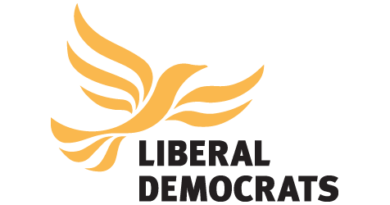PRESS RELEASE : Boost for Scottish businesses with biggest post-Brexit trade deal [March 2023]
The press release issued by the Department for Business and Trade on 31 March 2023.
Prime Minister announces deal to join CPTPP – a huge trade bloc in the Indo-Pacific which will now have a total GDP of £11 trillion.
- UK announces deal to join CPTPP – a major trade bloc in the Indo-Pacific which will have a total GDP of £11 trillion once the UK joins
- More than 800 businesses in Scotland exported to CPTPP countries in 2021 and could benefit after today’s announcement
- Joining the Trans-Pacific partnership, which contains some of the world’s fastest growing economies, gives Scottish companies, start-ups and farmers access to the world’s emerging middle class
The Scottish economy is expected to benefit after the UK Government today (31 March) announced the conclusion of trade talks with the Comprehensive and Progressive Agreement for Trans-Pacific Partnership (CPTPP), a vast free trade area spanning the Indo-Pacific.
The bloc is home to over 500 million people and will have a total GDP of £11 trillion once the UK joins. Joining the bloc could boost the Scottish economy by improving businesses’ access to some of the world’s largest markets.
Prime Minister Rishi Sunak said:
We are at our heart an open and free-trading nation, and this deal demonstrates the real economic benefits of our post-Brexit freedoms. As part of CPTPP, the UK is now in a prime position in the global economy to seize opportunities for new jobs, growth and innovation.
Joining the CPTPP trade bloc puts the UK at the centre of a dynamic and growing group of Pacific economies, as the first new nation and first European country to join. British businesses will now enjoy unparalleled access to markets from Europe to the south Pacific.
There are numerous opportunities for Scottish businesses to benefit from joining CPTPP, with more than 800 businesses in Scotland exporting £2.1 billion worth of goods to CPTPP countries in 2021.
Business and Trade Secretary Kemi Badenoch said:
This is an important moment for the UK. Our accession to CPTPP sends a powerful signal that the UK is open for business and using our post-Brexit freedoms to reach out to new markets around the world and grow our economy.
Joining CPTPP will support jobs and create opportunities for companies of all sizes and in all parts of the UK. It is also about giving Scottish businesses improved access to the countries that will be gateway to the wider Indo-Pacific region which is projected to make up the majority of global growth in the future.
Joining the trade bloc will also mean more than 99 percent of UK goods exports to CPTPP will be eligible for zero tariffs. In the long run, it could boost the UK economy by £1.8 billion and lead to a £1.7 billion increase in UK exports to CPTPP countries as result of the reduction of barriers across goods and services according to the UK Government’s published scoping assessment.
UK Government minister for Scotland Malcolm Offord said:
Finalising this trade deal is great news for Scottish business – CPTPP countries already represent a large part of the Scottish export market. It lifts the red tape for items from whisky to textiles and produce, opening new markets and increasing the global appetite for Scottish goods and services.
Key Scottish exports such as whisky could also benefit from the removal of tariffs as a result of the agreement, with the UK having exported over £1.1bn worth of whisky to CPTPP countries in 2022 in current prices. Tariffs of around 80% will be eliminated on UK exports of whisky to Malaysia over 16 years, improving market access for Scottish exporters.
Anishka Jelicich, Director of Public Affairs at Pernod Ricard UK said:
CPTPP is a big opportunity for our Scotch whisky business. Five of our top 20 export markets are CPTPP members.
We expect tariff cuts and smoother access to some of the world’s fastest growing economies to increase exports and secure jobs and investment in the UK, with sales doubling in some markets.
Edinburgh-based Cyacomb provides digital forensics software to help law enforcement, social media and cloud companies find and block harmful content many times faster than before, doing in minutes what can currently take days. Cyacomb are currently growing their exports to CPTPP member Canada, and actively working on expanding into Australia and Singapore – and the UK joining the trading bloc will help these efforts.
Ian Stevenson, CEO of Cyacomb, said:
As a growing business offering disruptive technology, time spent navigating the complexities of international trade is time not spent on delivering value to customers or advancing our mission.
CPTPP will simplify doing business and remove economic barriers in working with our customers in Canada, and in other markets we’re working to enter including Australia and Singapore.
CessCon Decom are based in Livingston and have an office in Brunei, where they carry out full turnkey decommissioning, dismantlement, reuse and recycling of offshore oil & gas infrastructure.
This work now contributes a significant amount to their turnover, and the UK joining the CPTPP will help them further their work there once Brunei and the UK have both ratified CPTPP, in addition to opening up new markets.
Lee Hanlon, the CEO of CessCon Decom commented:
Accession to CPTPP will create further opportunities for CessCon that were not available as part of the EU and will further extend our existing relationships with Brunei that are important to our business.
Along with the other fast developing world markets that this opens up to us, we’re excited to see the possibilities that being a member of the CPTPP opens up to our business.
Membership is a gateway to the wider Indo-Pacific region, which has 60% of the world’s population and is set to account for the majority (54%) of global economic growth and around half of the world’s billion middle-class consumers in the decades ahead.
As a member of CPTPP, the UK will help influence and shape global rules for industries of the future like digital, data and services, and secure our place as a global leader in a network of countries committed to free trade.
The UK and CPTPP members will now take the final steps required for the UK to formally sign in 2023.
Background:
- The UK is the first new member and European country to join CPTPP, which is made up of 11 Pacific nations including Australia, Brunei, Canada, Chile, Japan, Malaysia, Mexico, New Zealand, Peru, Singapore and Vietnam.
- Five rounds of talks with UK and CPTPP chief negotiators took place in total, with many more negotiations alongside. More than 150 delegates from all CPTPP member countries attended for the final round in Vietnam alone.
- The UK will sign our CPTPP accession letter following legal review, in due course. This will take place on terms that are right for the UK.
- Membership will improve trade opportunities with all countries in the bloc, including the nine countries with which we already have a bilateral FTA.
- The Government has been clear that the NHS and the price it pays for drugs is not for sale in any trade negotiations – including CPTPP – and that it will not sign trade deals that compromise the UK’s high environmental protections, animal welfare and food standards.
- Joining CPTPP is a critical part of the government’s wider trade strategy, which aims to deepen links with faster-growing parts of the world beyond Europe, partnering with countries who believe in free and fair trade.
Additional benefits of UK accession to CPTPP include:
- Boosting services: The UK is the world’s second largest services provider and services accounted for 43% of our trade with CPTPP members last year. Joining the bloc will slash red tape – UK firms will not be required to establish a local office or be resident to supply a service and will be able to operate on a par with local firms.
- Increased flexibility: Modern ‘rules of origin’ could make British businesses more competitive by allowing them to trade more freely across the bloc. For example, UK car manufacturers could sell car engines tariff-free to a car maker in the bloc who could then sell those cars tariff-free to any member country. This is currently not possible under all the bilateral trade agreements the UK has in place with CPTPP members and will help exporters diversify their supply chains and create new export opportunities.
- Pro-investment: Investment between the UK and CPTPP countries is expected to increase as the agreement contains provisions to limit barriers and encourage more inward investment. Inward investment stocks to the UK from CPTPP countries were worth £182 billion in 2021.
- Cutting-edge: Remotely delivered services from the UK to CPTPP were worth £20.5 billion in 2020. CPTPP sets modern rules for digital trade across all sectors of the economy and will support UK businesses of all sizes to seek new opportunities in CPTPP markets.
- New markets: Joining means we will have a Free Trade Agreement with Malaysia for the first time, giving businesses far more access to an economy worth £271 billion in GDP in 2021. Tariffs of around 80% will be eliminated on UK exports of whisky and 30% on UK exports of cars, helping the UK get a larger share of the market.



